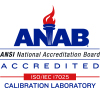
Like a kid in a candy shop, we get excited by the endless options of sweet treats surrounding us. Lollipops, butterscotch, gummies and fudge all have a different appearance, taste and texture. But they do have one thing in common, they all originated from just two simple ingredients: water and sugar.
As the water and sugar cooks, the water boils and begins to evaporate into the sugar, forming a syrup. It’s at this point when the temperature starts to rise that it is determined for how long mixture is boiled, depending on the type of candy being made.
The final outcome of the candy depends on the sugar concentration or the syrup. Higher temperatures with greater sugar concentrations usually result in hand candies, whereas, lower temperatures result in softer candies.

Temperature control is critical when it comes to candy making, so having an accurate thermometer can make all the difference. While the common candy thermometer can measure temperatures up to about 160 °C, data loggers designed for commercial candy production can withstand higher temperatures. Keep in mind, if the thermometer or data logger rests on the bottom of the pot, it will skew the results!
MadgeTech offers several temperature monitoring solutions for commercial candy makers. The HiTemp140 can go into a boiling pot to record temperatures during the cooking process, but for applications above 140 °C the HiTemp140 must be used in conjunction with a thermal shield. For instantaneous, real-time readings, the RFTCTemp2000A accepts a variety of thermocouples allowing for users to monitor extended temperatures.
To learn more about how data loggers are used throughout a variety of candy making applications, give us a call at (603) 456-2011 or email us at [email protected].






